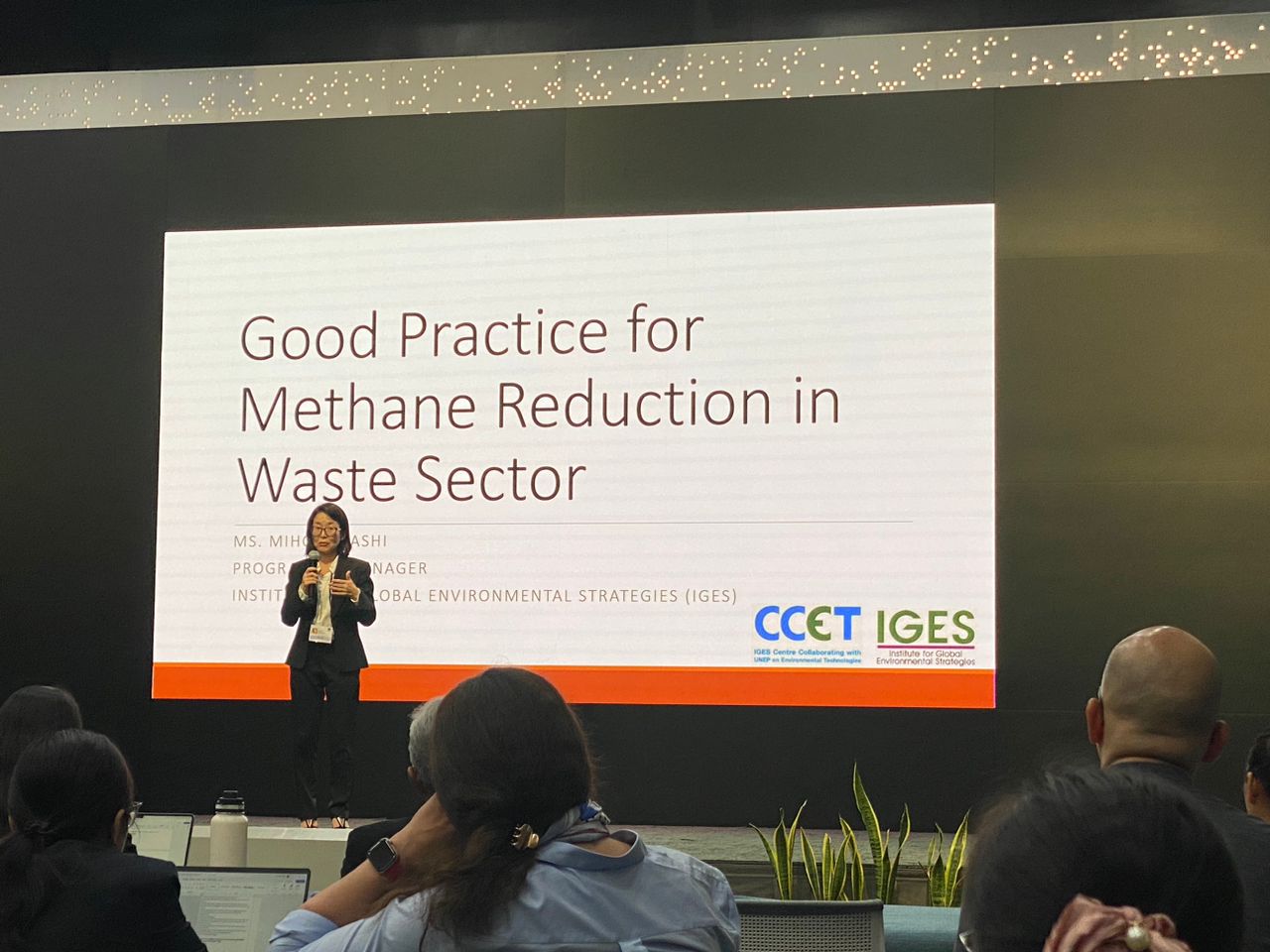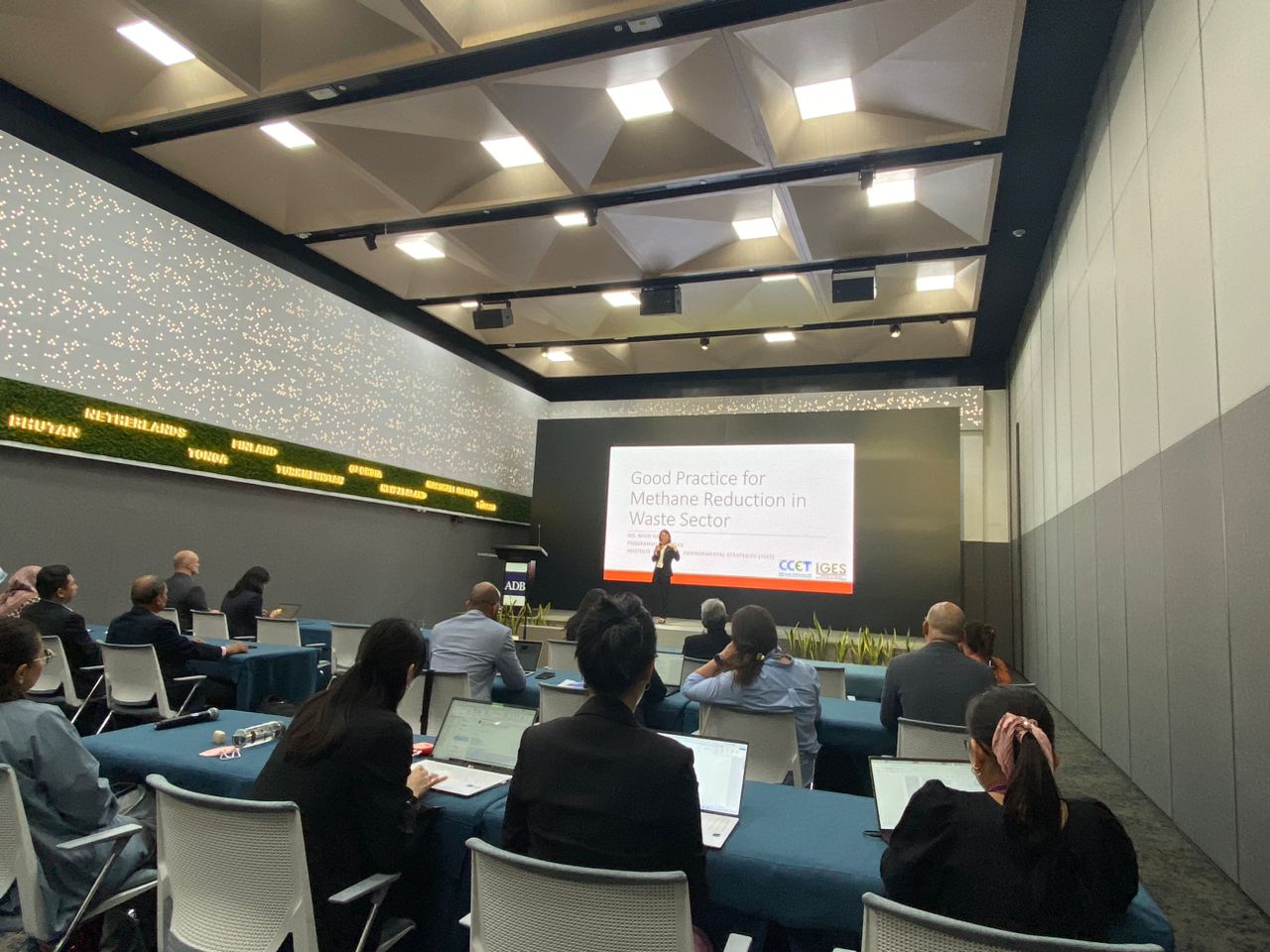The Better Air Quality (BAQ) conference 2023, the region's largest and most prestigious air quality gathering, was held on 15th -17th November 2023, with pre-events on 13th -14th November, at the Asian Development Bank (ADB) in Manila, Philippines. It was organised by Clean Air Asia (CAA), along with co-organizers, the ADB, and the Climate and Clean Air Coalition (CCAC), bringing hundreds of policymakers, stakeholders, world-renowned experts, academics, and industry leaders. Over 700 delegates from 39 countries including IGES experts committed to achieving better air quality.
One of the side-events "Unveiling the Science and Strategies: Methane Mitigation 101 Workshop" was an introductory workshop on methane mitigation organized by the Climate and Clean Air Coalition (CCAC) together with the Global Methane Hub (GMH). Mr. Nethan Borgford-Parnell, Science Affairs Coordinator of CCAC, provided the audience with the basic science behind methane and its links to air pollution as methane drives a rise in tropospheric ozone, which causes more than 1 million premature deaths annually, loss of agriculture production, in addition to the climate change as methane is the second largest contributor to the global warming after CO2. He also stressed the importance of incorporating the methane reduction into the national policy and strategies, and the CCAC’s support on Methane Roadmap Action Programme (M-RAP) through which more than 30 countries across the world have been developing feasible methane mitigation actions. Under the M-RAP Programme, IGES is actively engaged in supporting the development of national methane reduction roadmaps in two Asian countries, including Cambodia and Micronesia.
The workshop also featured insights from IGES, showcasing practical experiences and analyses in municipal solid waste management in Asia. Ms. Miho Hayashi, Programme Manager of IGES-CCET, presented about several technical options such as composting, bio-digestion, black soldier fly, landfill gas capture, etc to reduce methane emission. Methane is generated through the process of anaerobic digestion of organic waste that is usually openly dumped at final disposal sites without pollution control in low and middle-income countries. She highlighted that improvement of waste management can leads to better air quality through methane reduction, but it requires sustainable operation of the adapted technique and technology, and the sustainability depends on cost of sorted-waste collection, market maturity of the products made of recycled material, and cooperation on waste segregation from waste generators including residents, offices, and commercial entities. She further delivered a comparative analysis of centralized composting activities in Sri Lanka, providing valuable insights into sustainable operational aspects, including the modality of operations, financial and technical support from provincial and central governments, leadership, and citizen cooperation and awareness.
At the end, the workshop underscored a crucial message: the prompt implementation of methane mitigation measures is technically and financially feasible; however, it demands robust political will, comprehension from government and business sectors, and a transformative shift in consumer behaviour. The audience departed with a distinct awareness that urgent action is imperative to tackle methane emissions and their far-reaching impacts.


